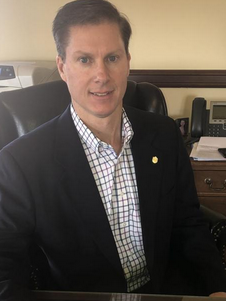


This post was originally published in the Marshall News Messenger
Angel loves soccer. But the 14-year-old Texan spends much more time with doctors than his teammates on the field. That’s because Angel suffers from severe, recurring asthma attacks.
The key to better health for Angel isn’t a new health clinic, more insurance coverage, or the latest medical treatment after his next asthma attack. It’s understanding what triggers his attacks and preventing them in the first place.
Addressing the conditions where he lives with some combination of replacing carpets, improving ventilation, and removing household mold may be the most effective prescription for improving Angel’s health.
Done successfully, it could make a world of difference — fewer urgent trips to the doctor and far more time in school and with friends — for Angel and the 600,000 other Texas children who suffer from asthma.
This new approach to tackling Angel’s health problem is one example of how we all need to change the conversation to improving health, not just healthcare across Texas.
Recently, Harrison County Commissioner’s Court voted to approve a research project to do just that.
At no cost to taxpayers, this research project will take a closer look at the relationship of how the county spends funds and the health of those who live here.
The goal is to help answer this important question — Without adding any additional money to the budget, could changing the way the county spends on public services lead to improved health outcomes for our community?
A recent statewide study looked at the relationship between local public health services spending and health across all Texas counties.
Overall, researchers found that moving more government dollars to certain non-healthcare categories like public health, fire and ambulance, housing development and libraries were associated with improvements in a county’s health ranking.
Now, researchers will conduct a detailed analysis of spending patterns in Harrison County to see if similar changes would potentially yield similar results.
The Episcopal Health Foundation (EHF) works across 57 Texas counties and is dedicated to supporting solutions that address the underlying causes of poor health in Texas. Its simple mission is to improve health, not just healthcare across the state.
That’s why EHF is spearheading the effort and funding the Harrison County project. Researchers from the Texas Health Institute and the School of Social Work at Stephen F. Austin State University are also key partners in the work.
Just like Angel’s victory over childhood asthma won’t happen through healthcare alone, our health issues can’t be solved only by more visits to a doctor or hospital.
While medical care clearly plays an important role, the focus of Texas’ healthcare system must eventually shift from healthcare delivery alone to promoting community wide health and wellness. This effort takes a village.
We hope you’ll follow the progress of this exciting research project and our effort to address health in new ways. It’s one step toward improving the health of our community in a more cost-efficient and effective manner, and could provide invaluable long-term health dividends for those who call Harrison County home.